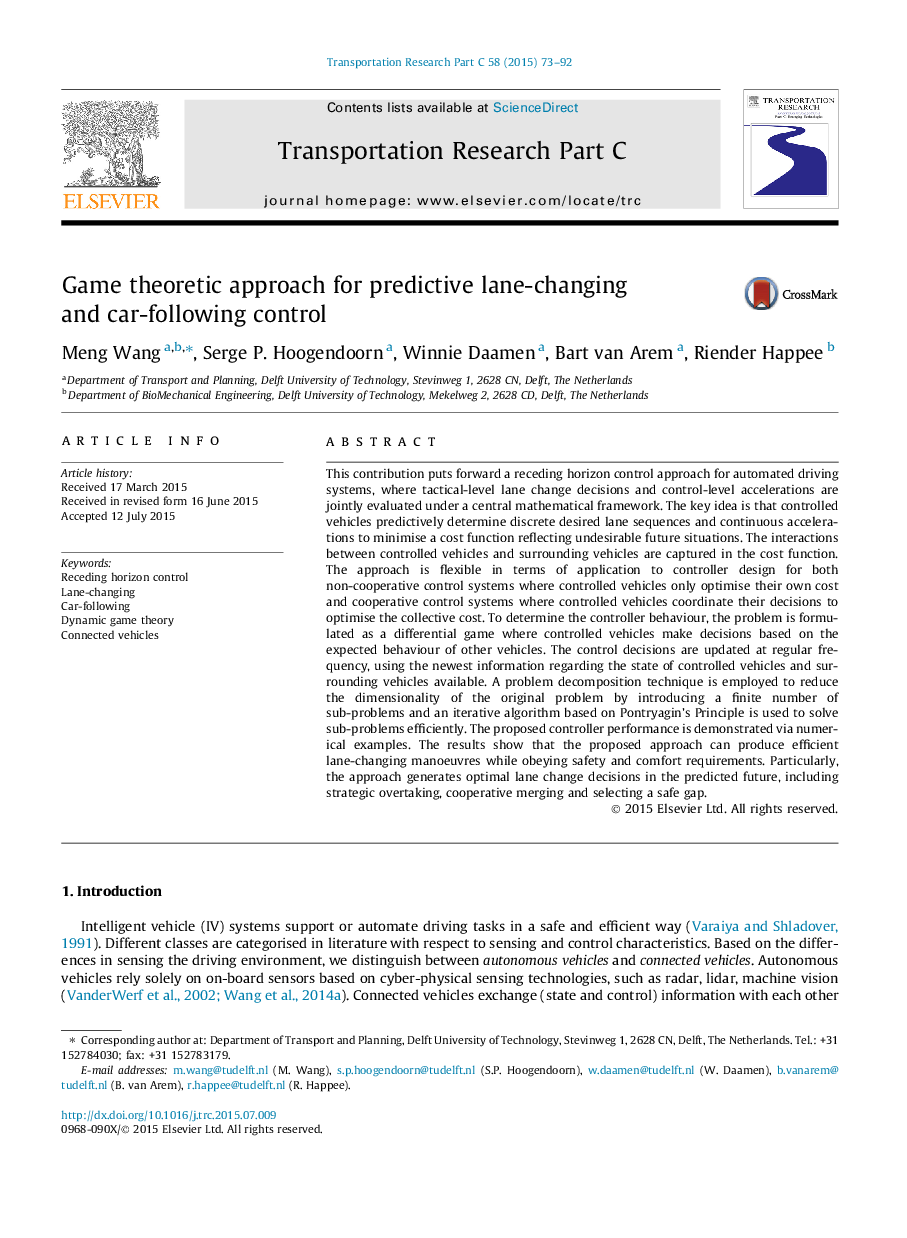| Article ID | Journal | Published Year | Pages | File Type |
|---|---|---|---|---|
| 10359043 | Transportation Research Part C: Emerging Technologies | 2015 | 20 Pages |
Abstract
This contribution puts forward a receding horizon control approach for automated driving systems, where tactical-level lane change decisions and control-level accelerations are jointly evaluated under a central mathematical framework. The key idea is that controlled vehicles predictively determine discrete desired lane sequences and continuous accelerations to minimise a cost function reflecting undesirable future situations. The interactions between controlled vehicles and surrounding vehicles are captured in the cost function. The approach is flexible in terms of application to controller design for both non-cooperative control systems where controlled vehicles only optimise their own cost and cooperative control systems where controlled vehicles coordinate their decisions to optimise the collective cost. To determine the controller behaviour, the problem is formulated as a differential game where controlled vehicles make decisions based on the expected behaviour of other vehicles. The control decisions are updated at regular frequency, using the newest information regarding the state of controlled vehicles and surrounding vehicles available. A problem decomposition technique is employed to reduce the dimensionality of the original problem by introducing a finite number of sub-problems and an iterative algorithm based on Pontryagin's Principle is used to solve sub-problems efficiently. The proposed controller performance is demonstrated via numerical examples. The results show that the proposed approach can produce efficient lane-changing manoeuvres while obeying safety and comfort requirements. Particularly, the approach generates optimal lane change decisions in the predicted future, including strategic overtaking, cooperative merging and selecting a safe gap.
Related Topics
Physical Sciences and Engineering
Computer Science
Computer Science Applications
Authors
Meng Wang, Serge P. Hoogendoorn, Winnie Daamen, Bart van Arem, Riender Happee,
